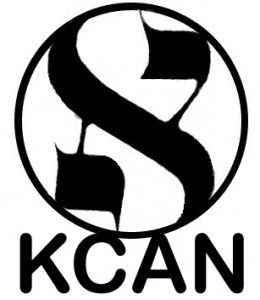By Rabbi Max Kohanzad
Max is a rabbi, spiritual teacher and ‘inspiring maverick’

Have you ever come across those well-meaning non-Jewish folk who confess that if they can they buy “kosher” food because they naively believe it’s better, cleaner and healthier? When that has happened to me, I smile and nod encouragingly, but end up looking down at my feet feeling slightly embarrassed knowing, as I do, that it’s a lie, it’s a myth that’s unfortunately very far from the truth.
The sad truth is that a kosher stamp doesn’t mean anything about the health or quality of the food. It doesn’t prevent the food containing high levels chemicals, colourings, pesticides, GMO’s, or being the product of animal cruelty and neglect or endemic employee abuse.
But shouldn’t kosher food be better? With our long history of leading the way in ethics and morality, shouldn’t the Jewish people and especially the self-appointed spiritual leaders of the Jewish people, the rabbis in charge of defining what “kosher” means, shouldn’t we be “a light unto the nations” leading the way in healthier, more responsible food production and choices?
Judaism has long had very high standards with regards to how we treat employees, animal welfare and our responsibly to our planet.
But the current kosher certification model doesn’t include these other important Jewish concerns, but rather it purely focuses on the minutiae of details around the potential forbidden mixtures of milk and meat, and other specifically rabbinic concerns relating directly to the food itself in terms of its kosher status, ignoring the many other halachic [according to Jewish law] and ethical demands.
Without a broader view of Judaism’s ethical and environmental concerns, our kosher food has unfortunately become notoriously unhealthy, unethical and damaging to the environment.
Kosher dips and salads have made headlines in the national press because of their alarmingly high levels of artificial colours, chemicals and preservatives. The “value” ranges of kosher milk in the UK come from factory farms, where animals are fed GMO corn and grains, don’t get to leave their cramped shed for most of the year, are routinely treated with antibiotics and live for only a quarter of their natural lives.
Kosher meat in the United States and South America is now infamous for both its abuse of migrant workforce but also for its diabolical cruelty to animals.
At the very centre of Judaism, both in our liturgy and in our moral and spiritual outlook we are called upon to declare the oneness of G-d and all existence. We are asked to behave in a way that honours and respects that unity and that acts responsibly in the face of the sacredness of all existence.
Kosher should mean, that the employees have been paid a living wage, are treated with dignity, that the animals have lived happy and healthy lives, that the food doesn’t contain antibiotics, and isn’t loaded with hazardous colourings and chemicals, and haven’t been produced in a way that destroys our planet, not simply because it’s currently fashionable to do so, but rather because we as Jews are compelled to because our rich pragmatic spiritual tradition demands it of us.
This is why I set up the KCAN [Kosher, Caring And Natural] hescsher – certification – to offer a triple kosher certification, one that is 100% halachically [according to Jewish law] kosher, but is also fair trade, cruelty free and organic or as close to nature as possible, because that’s what the G-d of Judaism actually demands us to do.
So far, I have given my hechsher to a vegan chocolate charity, a probiotic raw food brand in Israel, and a Welsh natural water company.
Find out more at: kcan-kosher.org.uk




















